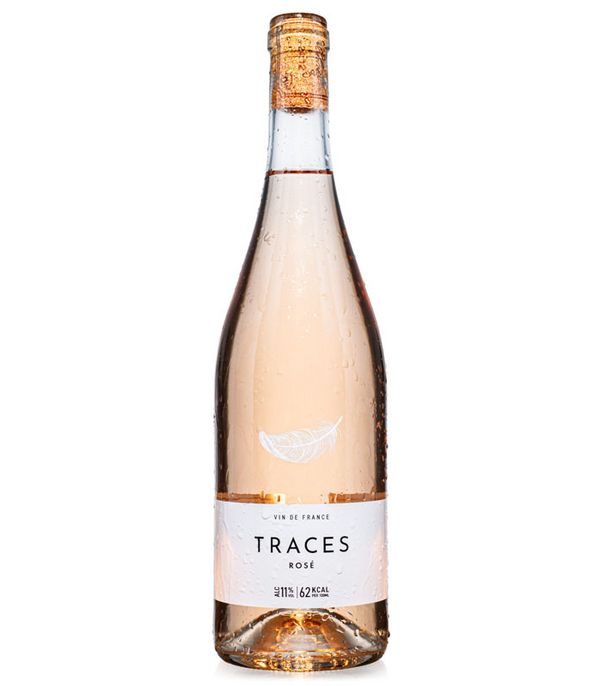TRACES Rosé
Product Details
TRACES brings you an award-winning, naturally crafted wine that fits effortlessly into your lifestyle. And here’s the best part—it’s the first wine in the UK to be endorsed by WeightWatchers, the world’s leading weight health programme.
There’s no shame in feeling like having a glass of wine even after you’ve done an exercise class. That warrants a treat, right? Lucky for you, TRACES Rosé is the wine you can actually enjoy after that spin class, and not feel an ounce of guilt. It’s a wine made to fit in with your lifestyle, not fight against it!
Food pairing suggestions
- Seafood paella
- Chicken or nicoise crunchy salads
- Feta, mozzarella, cheddar or baby swiss cheese
